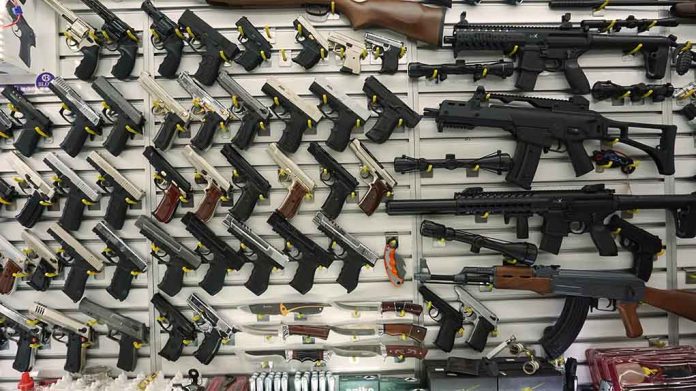
The United States is set to resume sales of offensive weapons to Saudi Arabia, reigniting debates on national security, human rights, and America’s role in the Middle East.
At a Glance
- U.S. to resume offensive weapons sales to Saudi Arabia after a 3-year pause
- Decision aims to strengthen ties with Saudi Arabia amid regional tensions
- Move sparks concerns over human rights and potential geopolitical consequences
- Saudi Arabia seen as key partner in countering Iranian influence and resolving Gaza conflict
A Shift in U.S. Foreign Policy
In a significant policy reversal, the Biden administration has decided to resume the sale of offensive weapons to Saudi Arabia. This move comes after a three-year hiatus implemented due to concerns over Saudi Arabia’s human rights record, particularly regarding airstrikes in Yemen that resulted in civilian casualties.
The decision reflects a complex balancing act between strategic interests and ethical considerations. While the administration initially pledged to prioritize human rights in its approach to Saudi Arabia, geopolitical realities seem to have prompted a reassessment of this stance.
Strategic Considerations
Saudi Arabia remains a crucial partner for the United States in the Middle East. The kingdom’s strategic importance has been underscored by recent developments, including its cooperation in repelling Iranian attacks and its potential role in resolving the Gaza conflict.
“The US hopes Saudi Arabia will help resolve the Gaza conflict and assist in repelling potential Iranian attacks on Israel.” – The Times of Israel
Furthermore, the U.S. is eyeing Saudi Arabia’s potential normalization of relations with Israel, a move that could significantly reshape the region’s diplomatic landscape. This prospect has led to negotiations for a package of incentives, including security guarantees and continued weapons flow.
Human Rights Concerns
Despite the strategic rationale, the decision has not been without controversy. Human rights activists and some lawmakers have expressed grave concerns about arming a regime with a troubling human rights record.
“The Saudi-led intervention in Yemen has caused immense human suffering and regional instability, with significant U.S. arms support.” – Quincy Institute for Responsible Statecraft
Critics argue that providing offensive weapons to Saudi Arabia could potentially fuel further violence and suppression in the region. The memory of civilian casualties in Yemen remains fresh, despite a UN-brokered truce that has largely held since early 2022.
Economic and Industry Influences
It’s worth noting that the U.S. arms industry plays a significant role in shaping export policies. Four major companies – Lockheed Martin, Boeing, Raytheon, and General Dynamics – are involved in over 58% of major arms offers. This economic reality undoubtedly factors into policy decisions.
As the world’s leading arms exporter, accounting for 39% of major weapons deliveries from 2017-2021, the U.S. has substantial economic interests tied to these sales. However, this also raises questions about the potential consequences of flooding volatile regions with advanced weaponry.
Looking Ahead
As the Biden administration moves forward with this policy shift, it will need to navigate a complex web of strategic interests, ethical considerations, and potential geopolitical ramifications. The decision to resume offensive weapons sales to Saudi Arabia may strengthen ties with a key regional ally, but it also risks entangling the U.S. in future conflicts and compromising its stance on human rights.
Ultimately, this move underscores the ongoing challenge of balancing America’s global interests with its professed values. As events unfold, it will be crucial to monitor the impact of this decision on regional stability, human rights, and America’s standing on the world stage.
Sources:
1. US will resume offensive weapons sales to Saudi Arabia
2. US to resume sales of offensive weapons to Saudi Arabia
3. US to resume sales of ‘offensive’ weapons to Saudi Arabia
4. US to lift ban on offensive weapons sales to Saudi Arabia
5. US ends ban on offensive arms sale to Riyadh, eyeing Saudi help on Gaza and Iran














